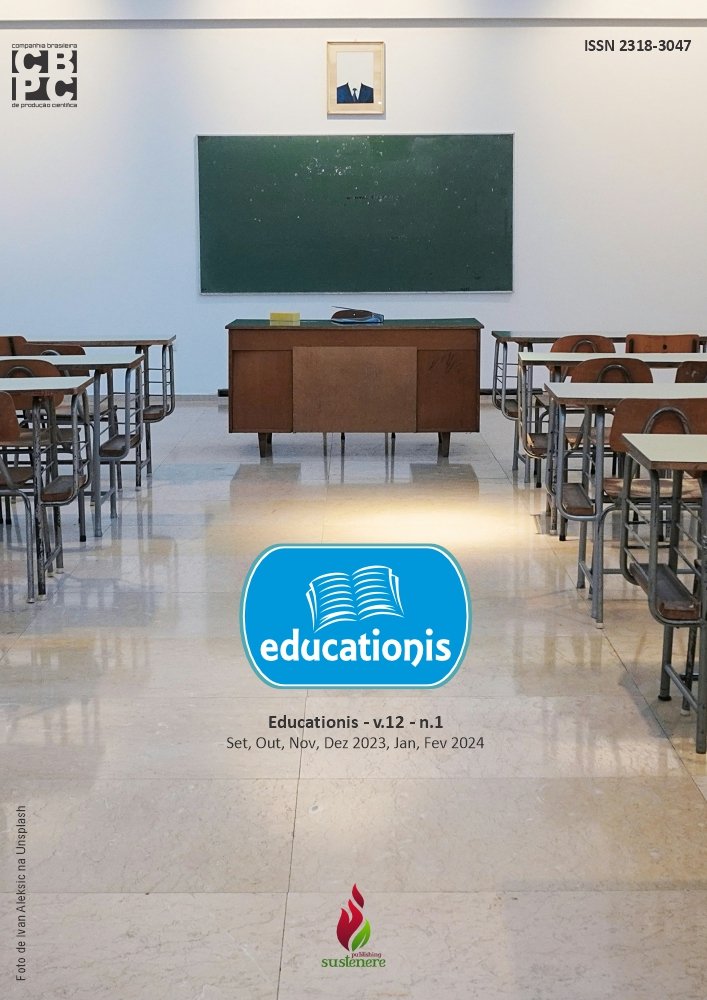The approach of nouns (noun and adjective) in Portuguese textbooks: dialogues between traditional grammar and morphosyntactic studies of the language
Keywords:
Morphosyntax, Textbook, Teaching, Normative GrammarAbstract
The main objective of this work was to analyze how the Portuguese Language (LP) textbook approaches the noun and adjective classes. For this, we investigated how these contents are presented, whether based on the treatment from the perspective of traditional grammar, that is, normative grammar, or in the light of morphosyntactic studies. Another concern is to verify whether these levels of structures and linguistic descriptions are simultaneously addressed in textbooks. Therefore, the two works used to compose the corpus of the research are: Alpha generation Portuguese language: elementary school: final years: 6th grade, organized by the authors Cibele Lopresti Costa and Greta Marchetti (2019) and Se liga na Língua: Leitura, text and language production by Wilton Ormundo and Cristiane Siniscalchi (2018). The theoretical framework addressed here for comparison with normative grammar was: Bechara (2004), Cegalla (2008) and Rocha Lima (1997). Later, to compare with the morphosyntactic studies we decided to bring the pragmatics of morphosyntax Sautchuk (2010), Macambira (1987), Monteiro (2002), Mattoso Câmara Jr. (1977), Rosa (2003). Given this, it is proposed with these thinkers, mentioned above, of normative grammar and morphosyntax, to answer the following questions: how are word classes (nouns and adjectives) addressed in textbooks? How to distinguish normative grammar from morphosyntactic ideologies?
Downloads
Published
Issue
Section
License
Copyright (c) 2023 Civicae

This work is licensed under a Creative Commons Attribution-NonCommercial-NoDerivatives 4.0 International License.
The CBPC - Companhia Brasileira de Produção Científica (Brazil CNPJ: 11.221.422/0001-03) the material rights of the published works. The rights relate to the publication of the work anywhere in the world, including rights to renewals, expansions and dissemination of the contribution, as well as other subsidiary rights. All electronically published works may subsequently be published in printed collections under the coordination of this company and / or its partners. The authors preserve the copyright, but are not allowed to publish the contribution in another medium, printed or digital, in Portuguese or in translation. Exceptionally, the authors of the special section “Registration of Artistic Works (photographs, music, poetry, poems, sonnets, etc.)” in “Arts / Music” journals preserve copyright and materials.









